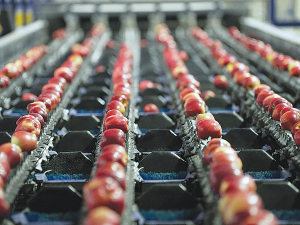Apples and pears growers, targeting $2 billion in revenue by 2035, are banking on the support of local and central government.
The country's 288 export growers exported $892 million worth of apples and pears in 2023, compared to $347m in 2012, outstripping national export growth.
New Zealand Apples and Pears chief executive Karen Morrish says the growth in export value has come from increased productivity, investment in high value varieties as well as the diversification of international markets.
Morrish says this means the sector is well placed to further align with the Government's desire to double export value in 10 years.
However, growth is dependent on the supportive economic and regulatory conditions.
"Since 2020, conditions have not been ideal with growers struggling to access labour due to Covid-19 border closures, and Cyclone Gabrielle decimating the 2023 crop. As a result, industry revenue has declined by around 0.5%, per year from 2020 to 2023," Morrish told Rural News.
"We want to ensure there is an operating environment that is conducive to growth.
Read More
"The general cost of production has increased like most parts of the agricultural and horticultural industry, so that's squeezed margin and had a significant impact on orchard gate returns.
"We want to focus on improving returns for growers, which could include a change of settings for labour, capital compliance, market access, terms of trade, environmental regulations and water security as well as the ongoing accessibility to tools."
Last month, New Zealand Apples and Pears released new research from MartinJenkins that showed the industry contributes almost $2 billion of total revenue impact to the national economy. It found that the industry contributes $918 million to New Zealand's GDP, comprising of $348 million direct sector contribution and $570 million of industry linkages and spending. Regionally, the industry is more significant again, particularly in Nelson, Tasman and Hawke's Bay, where it is the second and third largest contributor to regional GDP respectively.
The industry has 10,727ha of land with orchards, and 45 export packhouses send about 18 million TCEs (18kg Tray Carton Equivalents) overseas.
Morrish says they hope the new report will further encourage local and central governments to recognise the value of the industry and work with them to ensure there is an operating environment that is conducive to growth.
"If this is in place, our growers will continue to grow the value of the sector and see our communities further supported.
"With the right settings, the valuable role of our industry to national and regional economies can be secured, and we can continue to produce the world's best quality fruit right here in New Zealand."



















